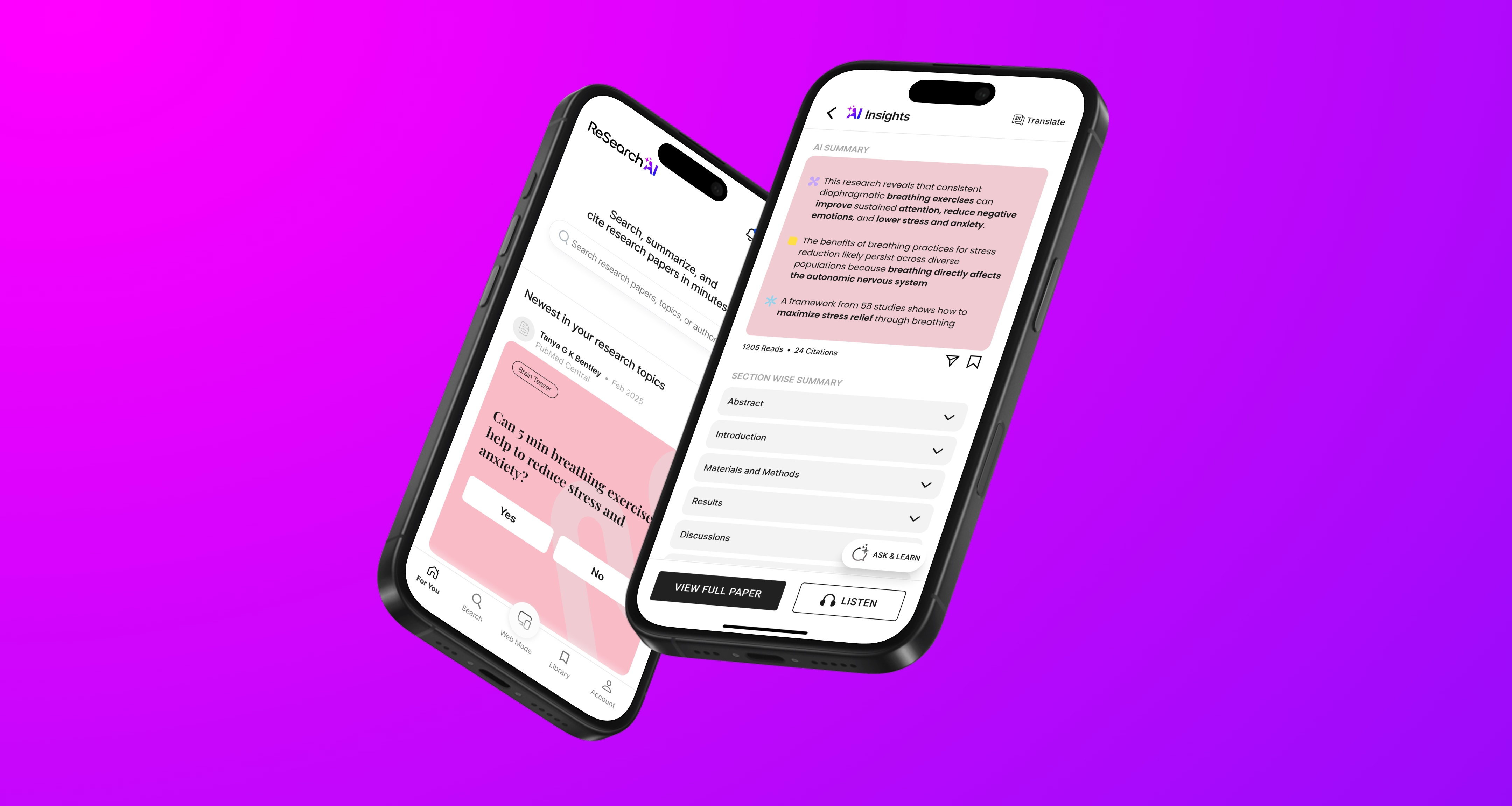
Students, especially those in university juggling tight schedules struggle to stay up to date with the latest research. Existing academic tools are dense, slow, and unfriendly to mobile workflows. They need a smarter, mobile-friendly solution that summarises, translates, and organises research seamlessly.
Our secondary research included a literature review on digital learning habits and a competitor analysis of platforms like Academia, and R Discovery to see what market currently offers.
Takeaways from literature review

We conducted surveys with masters students to explore pain points in existing research tools and interviewed professors and PhD students to gain expert perspectives on academic workflows and the potential integration of AI-powered research tools.
Once we finalised the IA and user flows after iterations, we started with wireframes. We tested Lo-Fi wireframes with users to find out the initial problems before moving to high fidelity wireframes.
We tested the high fidelity prototype with 8 participants. Usability testing highlighted both strengths and improvement areas. Users appreciated key features like AI-generated summaries, Translations and Listen mode, Save to library and Chat with AI.
Users felt the “More Insights” button resembled an ad, reducing engagement. Users also requested better AI transparency specifically, if they find differences in summary and research paper so provided any option to report such summaries.